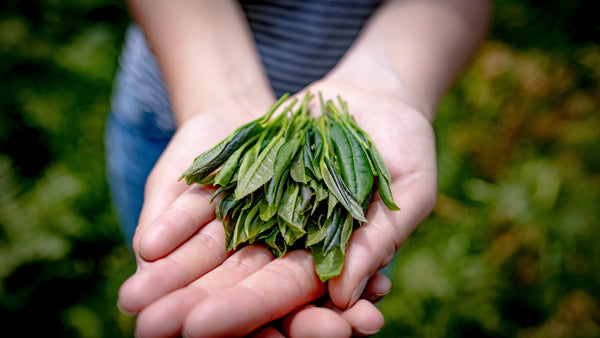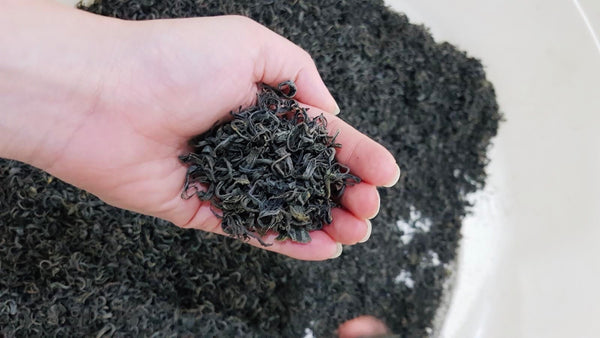Whenever you read about tea, most likely the health benefits subject comes up as well. But if you browse those hundreds of articles about the benefits of tea (yeah, I did that), they almost exclusively focus on green tea. So, it is no surprise that many people have got the impression that whereas green tea has numerous health benefits, black tea is caffeine and tannin laden, almost a harmful substance. In reality, it is nothing more than another tea-related myth. So, if you are one of those persons, who likes black tea, I have good news for you - based on the current knowledge, black tea is similarly beneficial for your health and it also does not contain more caffeine than green tea.
Let’s start from the basics. All the different versions of tea are the result of different processing methods. The original material - the leaves of the tea bush Camellia Sinensis - is exactly the same. And so, most of the chemical compounds and substances that can be found in the fresh tea leaf, will also be in the final product, regardless if it’s green or black tea.
 Fresh leaves of Camellia Sinensis
Fresh leaves of Camellia Sinensis
The caffeine content of the different teas is more or less the same
For example caffeine. Based on the climate, cultivar and soil (and numerous other factors) the content of the caffeine in dry tea leaves is anywhere between 2 and 6%. And as it has been found - different processing methods do not have a substantial effect on the amount of caffeine in the ready-made tea. To bring you an example - let’s assume that I get one batch of fresh leaves to our factory and I split it in half - from 50% I make green tea and from 50% black tea. The caffeine content of those teas (one green and the other black) would be roughly the same, once I have finished the processing. It doesn’t disappear anywhere. Does it make sense?
Antioxidants - heroes of the health benefits of tea
The same principle applies with small variations to almost all other components you can find in tea (amino acids, essential oils, pigments, minerals etc). With one significant exception. This exceptional group is called phenolic compounds. And those phenolic compounds are the famous antioxidants which are mainly discussed in the context of health benefits of the tea.
One group of antioxidants are called catechins. They are produced naturally by many plants - they can be found in almost all fresh fruits and berries, beans, even potatoes. You can get catechins by eating chocolate (cocoa beans are rich in them) and drinking wine (well, can be found in grapes too). But what makes tea special and famous for its antioxidants, is the fact that there is almost nothing that packs as much of those antioxidants than tea. To bring you an example - you would have to drink 3 mid-size cups of green tea (not a big deal) or 4 bottles of red wine (might be a bit challenging) to get the same amount.
But the composition of those antioxidants are also the main difference between the different types of tea. In white and green tea they are mostly staying in their natural form as catechins. But what makes black tea "black" is the oxidation process. During this process, the cells of the tea leaves are broken and then the antioxidant catechins in the fresh leaves react with the enzymes and oxygen and transform into something completely new - different oxidized polyphenols. These polyphenols are called theaflavins and thearubigins. To give you a better picture, the following table shows what changes in tea after it is oxidized. As you can see, almost nothing, except for those phenolic compounds.
 Source: Manoj Solanki Tea Chemistry https://www.slideshare.net/manoj100883/tea-chemistry
Source: Manoj Solanki Tea Chemistry https://www.slideshare.net/manoj100883/tea-chemistry
Lack of research
And now comes the key point about the black tea. As the catechins that are found in the green tea are widely present and can be found in almost all the fresh vegetables and fruits, they are much more widely researched and analyzed, so the different health benefits and effects of catechins are also quite well known by now.
At the same time, the polyphenols found in black tea (theaflavins and thearubigins) are not produced naturally in plants and are formed only, when oxidizing the tea leaves. Probably not surprisingly, it also means, that the research that has gone into those compounds is a tiny fraction of what has been done on the catechins. The limited amount of studies that HAVE been conducted, seem to indicate that the theaflavins and thearubigins might be as powerful antioxidants as the catechins, just functioning in a bit different way. We will certainly learn more about it in the future.
But as of now, remember that when you read again about the positive health effects of the green tea, it does not necessarily mean that black tea is less beneficial or healthy. It's just the indication of the fact that today science knows much more about the antioxidant compounds found in green tea and can, therefore, talk more affirmatively about the positive health effects.

Written by Hannes
